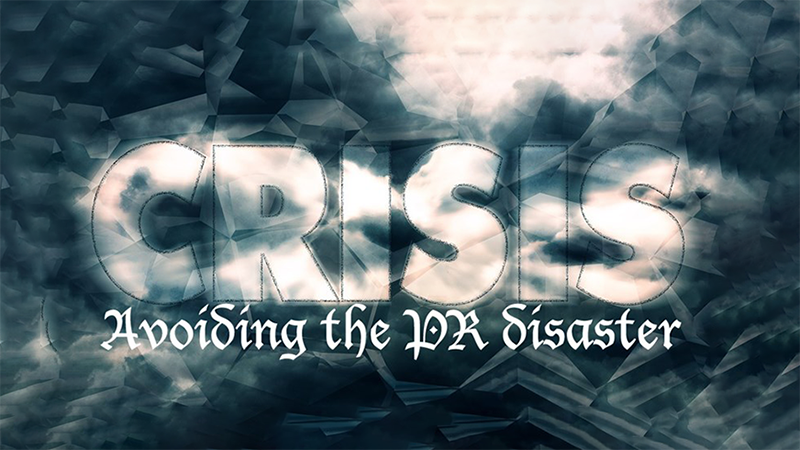How to avoid a ‘PR disaster’

About the author
Heather is a key member of our assessor team. PhD, BSc, PG, RSA, CAM

Whenever a crisis is badly managed, the term “PR disaster” can be found. The insinuation is that better crisis communication management could have avoided the resultant bad publicity.
Moreover, reputational damage is placed at the door of the public relations function, even though it is unlikely to have had oversight – let alone management control – over whatever caused the crisis to occur.
Yet, we cannot blame others for this situation when involvement of public relations in crisis management is viewed as enhancing its strategic value within organisations. A place for public relations counsel at the top table is assured as trusted advisers, communications experts and problem solvers when the going gets tough.
The ability to recommend a particular course of communicative action is presented as the key to the boardroom. This is reinforced by claiming responsibility for stakeholder relationship management. Regardless of whether the function is called public relations or communication(s), there is agreement that being able to anticipate, analyse and ameliorate crisis situations is the pinnacle of practice.
I was somewhat surprised, therefore, to realise that few of the attendees at the recent Deloitte Crisis Management conference appeared to have public relations or communication(s) responsibilities.
It was evident that crisis communication is seen as a vital element of crisis management. However, it was an adjunct when speakers laid out their crisis management approaches where communications and stakeholder relationships were supplementary to essential operational matters.
This separation reflects a management consultancy approach whereby experts are called upon to guide or take responsibility for a distinct aspect of the crisis management strategy. So perhaps not surprising to find at a conference organised by a firm that offers a full range of crisis and resilience services.
It is also not unusual that at a time of crisis, senior leaders turn to such counsel over their in-house teams. Such a move has the potential to undermine the authority of the organisation’s own PR/communication(s) team. This should not occur if a collaborative strategy is adopted whereby the strengths of internal and external expertise are balanced.
The external consultancy has the benefit of specialism and experience in crisis management. The internal function should offer stronger capability in stakeholder relationships, communications processes and core narratives. Together a more effective reputational management network should be evident.
Those working in-house or as external consultants without crisis expertise will benefit from adopting common frameworks, which can be learned through qualifications such as the CIPR Specialist Diploma: Crisis Communication.
Here, public relations and communication(s) crisis planning is positioned within the wider operational management context. As with close co-operation between any internal and external expertise in this area, it is essential for a seamless system to be in place. Consequently, those with responsibility for communications and relationships must be integral in the assessment of risk, issues management, influencing behaviours and protecting organisational reputation.
This is about shared responsibilities and mutual respect of areas of expertise. The intention is to avoid the “PR disaster” label for crisis management by closing any gap between those with different areas of control over how situations are handled. Organisations don’t need superheroes. They do need competent people who are adept at working together in good times and bad.
This post is one of a trilogy prompted by the Deloitte Crisis Management Conference 2018. The companion posts can be found at PRConversations.com and http://www.greenbanana.wordpress.com.